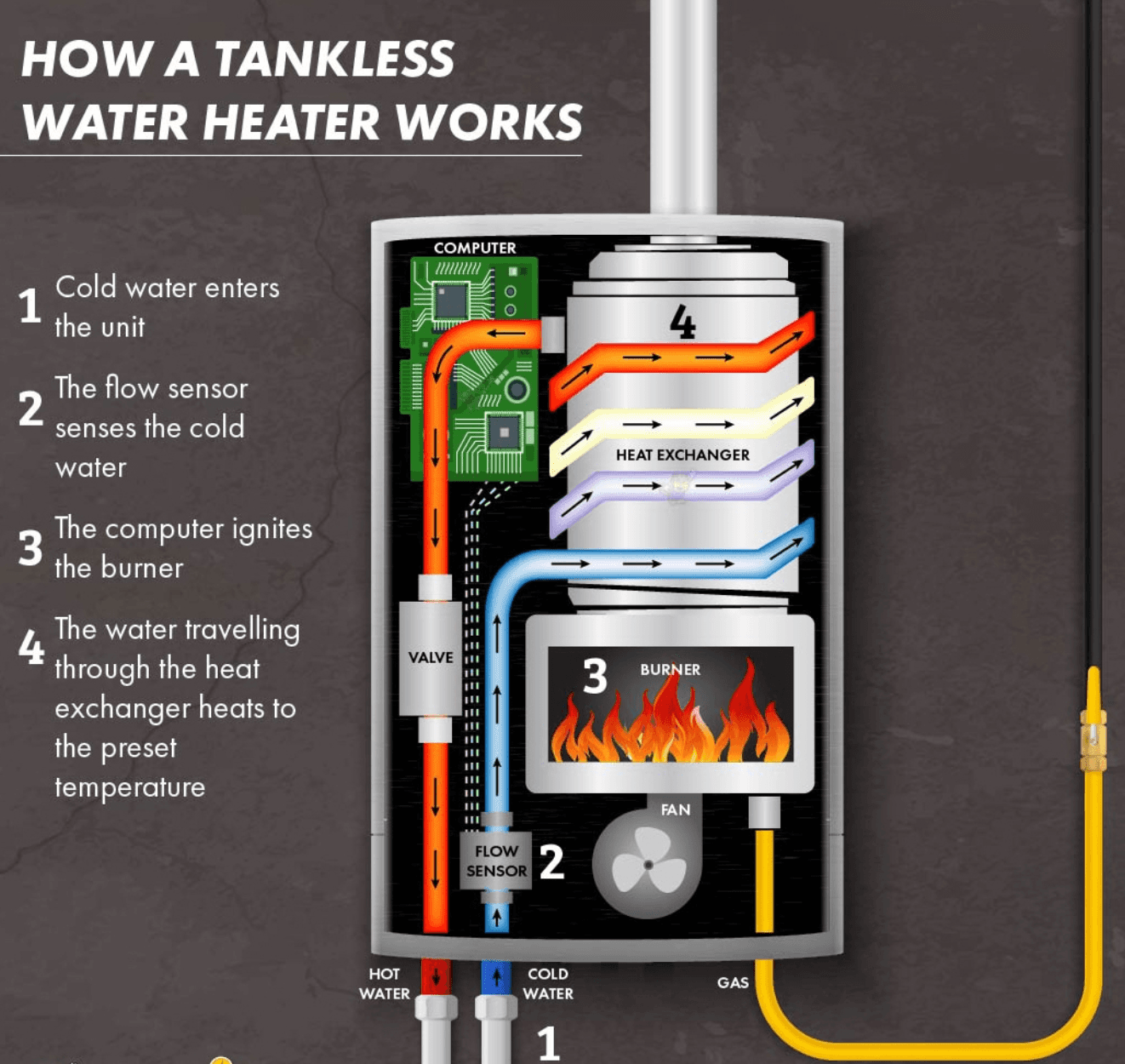How does a tankless gas geyser work?

Submitted: Monday, March 25th, 2024
Original Article: Link
How does a tankless gas water heater work?
A tankless gas water heater, also known as an on-demand water heater or instantaneous water heater, works by heating water directly as it passes through the unit. Unlike traditional water heaters with storage tanks, tankless models do not store hot water. Instead, they heat water on demand, providing a continuous supply of hot water as needed.
Here's how a tankless gas water heater works:
- Water Flow Initiation: When you turn on a hot water tap in your home, cold water begins to flow into the tankless water heater.
- Activation of the Burner: As water flows through the unit, sensors detect the water flow and activate the burner, usually powered by natural gas or propane. In some models, an electric heating element may be used instead of a gas burner.
- Heat Exchange: The burner heats up a heat exchanger, which transfers heat to the water flowing through it. The heat exchanger is typically made of copper or stainless steel and is designed to efficiently transfer heat to the water.
- Temperature Regulation: The unit's controls monitor the temperature of the outgoing hot water. They adjust the burner's intensity or the heating element's power to ensure that the water reaches the desired temperature set by the user.
- Continuous Flow: As long as there is a demand for hot water, the tankless water heater continues to heat water as it passes through the unit. This allows for a continuous supply of hot water without the need for a storage tank.
- Shut-off: When you turn off the hot water tap, the flow of water through the tankless water heater stops. The burner or heating element shuts off automatically, conserving energy until hot water is needed again.
Gas geysers offer several advantages:
1. instant hot water
2. only uses gas when using hot water
3. saves up to 25% on your total electricity bill
4. gets you off the grid - independent from the grid/Eskom
5. energy efficiency
6. space savings
7. an endless supply of hot water......
Did we spark your interest and are YOU looking for a gas geyser installation? Then answer a couple of questions and get a Quote here!
Fast, reliable, and professional service—hot water made easy! Looking for the best hot water solution? Check out our unbeatable packages and start saving today!

